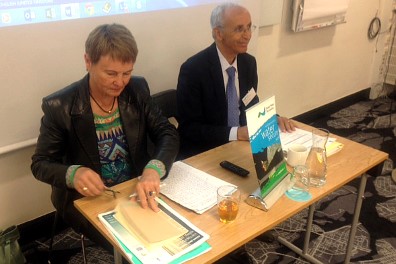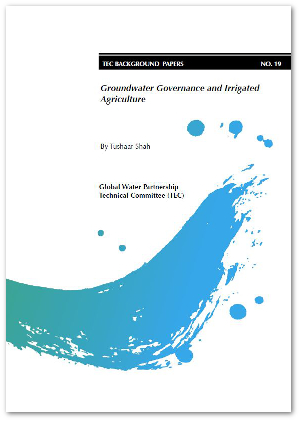 Groundwater Governance and Irrigated Agriculture, No. 19 (2014)
Groundwater Governance and Irrigated Agriculture, No. 19 (2014)
This paper provides an excellent overview of the global groundwater economy and assesses the opportunities it offers for irrigated agriculture and also the risks it poses for depleting and degrading aquifer systems. A review of the various ‘groundwater governance models’ suggests that while each has merit, none can claim to have achieved the sustainable use of groundwater. The author emphasizes that the socio-ecological and political environment is critical in determining the elements of an appropriate groundwater governance regime.
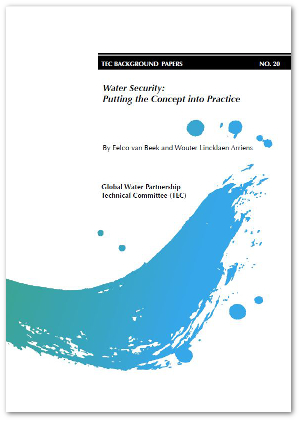 Water Security: Putting the Concept Into Practice, No. 20 (2014)
Water Security: Putting the Concept Into Practice, No. 20 (2014)
This paper describes the journey over the past two decades in which the process of integrating water resources management has developed and is reaching adulthood. The paper argues that water security can never fully be achieved, because ever-changing physical and economic conditions will require the continuous adaptation of water systems and behaviors in order to meet the growing demands and changing climactic conditions. The authors examine two approaches to increasing water security: the developmental approach seeking to increase water security over time, and the risk-based approach focusing on managing risks and reducing vulnerabilities resulting from climate variability and water-related disasters.
Shorter Notes and Papers
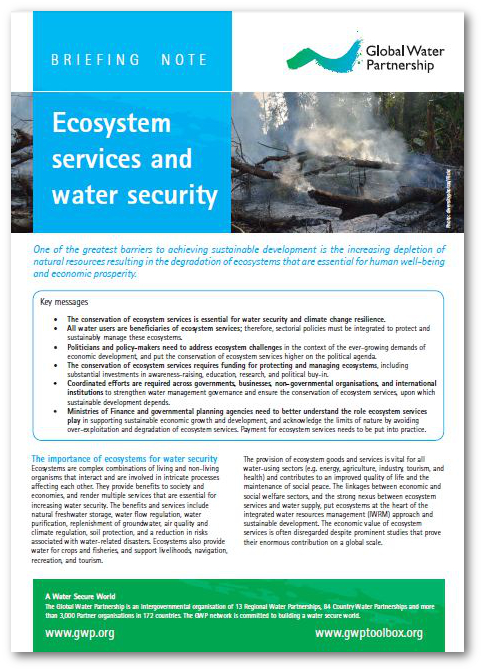 One of the greatest barriers to achieving sustainable development is the increasing depletion of natural resources, resulting in the degradation of ecosystems that are essential for human well-being and economic prosperity. To find out what needs to be done about it, read GWP's new Briefing Note "Ecosystem services and water security".
One of the greatest barriers to achieving sustainable development is the increasing depletion of natural resources, resulting in the degradation of ecosystems that are essential for human well-being and economic prosperity. To find out what needs to be done about it, read GWP's new Briefing Note "Ecosystem services and water security".
 “The links between land use and groundwater – Governance provisions and management strategies to secure a ‘sustainable harvest’” (2014) is a Perspectives Paper which argues that a common understanding of the interaction between groundwater and land is needed. This will help facilitate cross-sector dialogue on governance needs and management approaches, targeted at sustaining water resources and enhancing land productivity.
“The links between land use and groundwater – Governance provisions and management strategies to secure a ‘sustainable harvest’” (2014) is a Perspectives Paper which argues that a common understanding of the interaction between groundwater and land is needed. This will help facilitate cross-sector dialogue on governance needs and management approaches, targeted at sustaining water resources and enhancing land productivity.
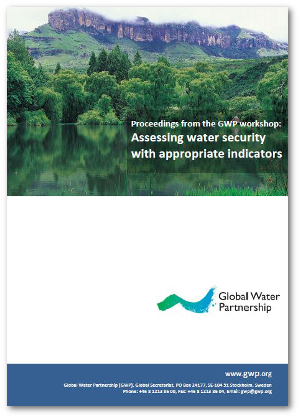 In November 2012 the GWP Technical Committee organised a two-day consultation comprising 26 experts to address the question on whether it is possible to quantify and measure water security. If so, what do we measure? And what can we measure? The paper “Proceedings from the GWP workshop: Assessing water security with appropriate indicators” is the outcome of these discussions.
In November 2012 the GWP Technical Committee organised a two-day consultation comprising 26 experts to address the question on whether it is possible to quantify and measure water security. If so, what do we measure? And what can we measure? The paper “Proceedings from the GWP workshop: Assessing water security with appropriate indicators” is the outcome of these discussions.
Top photo: GWP Chair Dr. Ursula Schaefer-Preuss and Technical Committee Chair Dr. Mohamed Ait-Kadi launching the new publications in Stockholm 29 August 2014.

